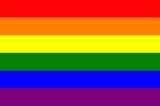
lesbian
A homosexual woman.
A homosexual woman.
lesbian(lĕz'bē-ən)
A woman whose sexual orientation is to women.adj.
Of, relating to, or being a lesbian. See Usage Note at gay.
[From the putative homosexuality of Sappho, lyric poet of Lesbos.]
A woman whose sexual orientation is to women.adj.
Of, relating to, or being a lesbian. See Usage Note at gay.
[From the putative homosexuality of Sappho, lyric poet of Lesbos.]
lesbian adjective
Of, relating to, or having a sexual orientation to members of one's own sex: gay,
Of, relating to, or having a sexual orientation to members of one's own sex: gay,
A lesbian is a woman who is romantically and sexually attracted only to other women. [1][2] Women who are attracted to both women and men are more often referred to as bisexual. An individual's self-identification might not correspond with her behavior, and may be expressed with either, both, or neither of these words.
Public policy
In Western societies, explicit prohibitions on women's homosexual behavior have been markedly weaker than those on men's homosexual behavior.
In the United Kingdom, lesbianism has never been illegal. In contrast, sexual activity between males was not made legal in England and Wales until 1967. It is said that lesbianism was left out of the Criminal Law Amendment Act of 1885 because Queen Victoria did not believe sex between women was possible, but this story may be apocryphal.[3] A 1921 proposal, put forward by Frederick Macquisten MP to criminalize lesbianism was rejected by the House of Lords; during the debate, Lord Birkenhead, the then Lord Chancellor argued that 999 women out of a thousand had "never even heard a whisper of these practices."[4] In 1928, the lesbian novel The Well of Loneliness was banned for obscenity in a highly publicized trial, not for any explicit sexual content but because it made an argument for acceptance.[5] Meanwhile other, less political novels with lesbian themes continued to circulate freely.[6]
In Western societies, explicit prohibitions on women's homosexual behavior have been markedly weaker than those on men's homosexual behavior.
In the United Kingdom, lesbianism has never been illegal. In contrast, sexual activity between males was not made legal in England and Wales until 1967. It is said that lesbianism was left out of the Criminal Law Amendment Act of 1885 because Queen Victoria did not believe sex between women was possible, but this story may be apocryphal.[3] A 1921 proposal, put forward by Frederick Macquisten MP to criminalize lesbianism was rejected by the House of Lords; during the debate, Lord Birkenhead, the then Lord Chancellor argued that 999 women out of a thousand had "never even heard a whisper of these practices."[4] In 1928, the lesbian novel The Well of Loneliness was banned for obscenity in a highly publicized trial, not for any explicit sexual content but because it made an argument for acceptance.[5] Meanwhile other, less political novels with lesbian themes continued to circulate freely.[6]
Sexual activity between women is as diverse as sex between heterosexuals or gay men. Some women in same-sex relationships do not identify as lesbian, but as bisexual, queer, or another label. As with any interpersonal activity, sexual expression depends on the context of the relationship.















No comments:
Post a Comment